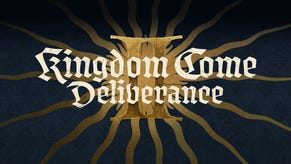Harrison on ID@Xbox: “All games are equal”
Microsoft announced and detailed its ID@Xbox programme for indie Xbox One developers at gamescom this morning. Patrick Garratt speaks to Phil Harrison on self-publishing and much more.
The Xbox One ID@Xbox programme has been announced this morning at gamescom in Cologne, a format by which Microsoft is claiming everyone, eventually, which have the opportunity to become an independent developer on its next gen console.
Applications for dev kits (which, helpfully, are free) are open as of today as part of an initiative which apparently "enables qualified game developers to build, publish and make their games available digitally on Xbox One."
Following a storm of criticism around E3 this year - during which Microsoft claim clean on some ostensibly disastrous choices regarding self-publishing on Xbox One and leading indies calling for senior heads to roll - it seems as though Redmond may have finally picked up the phone: anyone can apply for an ID@Xbox license; there are no fees for certification, patching or applications; the long-term goal is that any Xbox One will be usable as a dev kit; Kinect, Cloud, SmartGlass, GamerScore and every other Xbox One feature are available to all developers; discoverability is top of the agenda, with a suite of tools, such as Trending and Spotlight functions, potentially affording glory to any developer no matter its size; and, most importantly, developers will now be able to publish their own Xbox One titles without the need of a deal with a retail games publisher.
Sounds good? It does. Real world operation is different to bullet-points in a presentation, but it does appear that Microsoft is finally on the right indie track. I spoke to corporate VP Phil Harrison about the programme on the phone last week.
VG247: Firstly, how long has ID@Xbox actually been in development?
Phil Harrison: Fundamentally since the earliest architectural decisions on Xbox One, because we designed our platform, hardware, operating system, Cloud, Live services with this in mind. We wanted to enable our platform to be opened up to digital publishing in the truest sense, and really create a 21st Century digital platform.
To be blunt, this is a pretty big policy shift for the Xbox project. This is the first time - as far as I’m aware; correct me if I’m wrong – that independent developers have been allowed to self-publish on the Xbox platform. What’s caused this change in approach? Was it E3?
Well, I’m not sure that’s technically the case. We’ve enjoyed a strong heritage of what is typically called independent games and development and publishing over the life of the Xbox platform, going back ten years. Over 200 developers have launched over 400 games, representing over a billion dollars in sales. I think we’ve proven over our history a very strong commitment to this type of developer. But this programme definitely moves it forward, and definitely moves it forward in a very exciting way, based on the feedback that we got from the community and developers, what they were looking for in a platform. We’ve worked hard to level the playing field: all games are equal. We’ve built into the platform some very advanced discoverability functions which allow games to connect with gamers in the fastest way with the least friction. All of which, I think, is going to help developers build strong communities around their products. That’s what people wanted. That’s what they told us they wanted to do.
Was discoverability the main take-home from speaking to developers? Certainly when I speak to, for instance, iOS developers, it’s all they ever talk about. It’s a huge thing.
"All games are games. There will not be an indie channel. We have made it very clear that our store will treat games equally, irrespective of the size of the developer of the location of the developer."
It is. I don’t think there’s anything else as frustrating for a developer than building a really magical experience and not being able to connect it to the widest audience. What we have done with our platform, with features like trending and recommendations and spotlight, allow those experiences to surface through the community, surface through what your friends are playing, to be able to surface through the games that we as curators and editors of the store think are magical. But then to also put a lot of power into the hands of the player, through game DVR and upload, which allows players to share and socialise the games they’re playing and for their friends and people outside to be able to see what they’re playing and say, ‘That looks cool. I want to play the game and have a very simple way of getting hold of the experience.’ All of those are great steps forward and we have more to come.
I want to be clear on this. The ID@Xbox games are going to be presented in the same way as the bigger titles from large publishers like EA and Ubisoft. They’re going to be in the same place. Is that correct?
All games are games.
Right. Will there be an indie channel?
There will not be an indie channel. We have made it very clear that our store will treat games equally, irrespective of the size of the developer of the location of the developer. Whether you are a one man band, one or just a few people building a game – Chris Hecker is the name that immediately springs to mind – all the way up to a company like Crytek with hundreds of employees and everybody inbetween, that’s the full scope of the programme. We don’t worry about the size of the developer. That should not be an impediment to success on the platform.
What do the likes of EA and Ubisoft think about that? Have you had a positive response from them?
I would hope that any move by our platform to create more opportunities to play, and to being more games onto the platform to make it more successful on a global basis, is going to be well received by the entire industry. And I think one of the side effects, or side benefits, of this programme is to create a new on-ramp to get into the industry, and that’s going to be super-beneficial for all companies, all publishers, whether they’re multi-billion dollar public companies or privately held. I think it’s a big challenge to our industry as to how to get new talent on-ramped into development and creation of content.
There are going to be events starting this autumn related to ID@Xbox. Obviously, for people looking to get into games development that’s going to be incredibly exciting. How are you planning on supporting those events and what sort of structure are they going to take?
More details to come, but I think that we’ll focus initially on companies that we’re targeting or have expressed interest in joining the programme. In this first phase, while we are making development kits available to developers, we do have a practical limit on how many companies we can support in this first phase. But eventually, our aspiration is that everybody can become a creator, and I would hope that the events will scale as the community scales.
Do you already have a line-up of ID@Xbox games? Do you know the first games that’ll be launching? When will we see them?
I don’t personally have that. I know that we have very strong interest from a number of companies and individuals that we spoke to through our research phase, but we make the programme officially available from August 20, and then we’ll leave it to the developers to make announcements on their products in due course.
"There’s definitely opportunities for creators to bring something that we would never have thought of, particularly in a country where we don’t have development studios. That would be really exciting. I can’t wait to see some of those innovations. I think it’s where some real beauty’s going to come from."
Is the certification process exactly the same for ID@Xbox games as it is for games from larger publishers?
As far as I’m aware, yes. There’s no difference. I think we’re generally making efforts to streamline our certification process. As you’d expect, there are what I would describe as ‘industry standard content types’ that we will not permit on our platform, but there’s nothing that’s any different to any other platform that’s out there, certainly, in the commercial market. We want the broadest range of content types to come to the platform. It’s one the reasons why, very specifically, we haven’t called this a games programme: it’s an independent developers programme, specifically to encourage the broadest range of content types, not uniquely and specifically games.
What other types of content can we expect? Are you talking about productivity apps?
I think the developers will know their market and they’ll know the kind of people that’ll be buying an Xbox One, but I think there’s a lot of opportunity for applications that are clearly entertainment, but are not specifically about game or are not specifically gameplay. There’s definitely opportunities for creators to bring something that we would never have thought of, particularly in a country where we don’t have development studios. That would be really exciting. I can’t wait to see some of those innovations. I think it’s where some real beauty’s going to come from.
Will you cut different revenue deals for different games, or will everyone be exactly the same?
We don’t talk about our business model in the public domain in that way, but I will say that our model is industry standard. We do have the opportunity for us to co-market the games which we think are going to call out the features of our platform in the most compelling way. I definitely would imagine there are times when we work closely with developers to spotlight there games, and I think that’s great, helping connect the best games with gamers as efficiently as possible.
My instinct is to be excited about this. Is this a general feeling within Microsoft as well? Are you excited to be talking about it?
Yeah, it’s great. This is something that’s been planned all along. I think it’s our chance to create a new movement in the industry of developers who’re going to be building communities around their games and shortening the gap between content creator and consumer, and a lot of the architectural decisions about how we designed Xbox One were about making the machine and the platform as much suited for content creation as it was for content consumption.




.jpg?width=291&height=164&fit=crop&quality=80&format=jpg&auto=webp)





